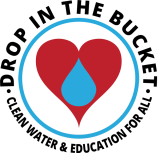How One Water Charity Is Empowering Girls Through Education
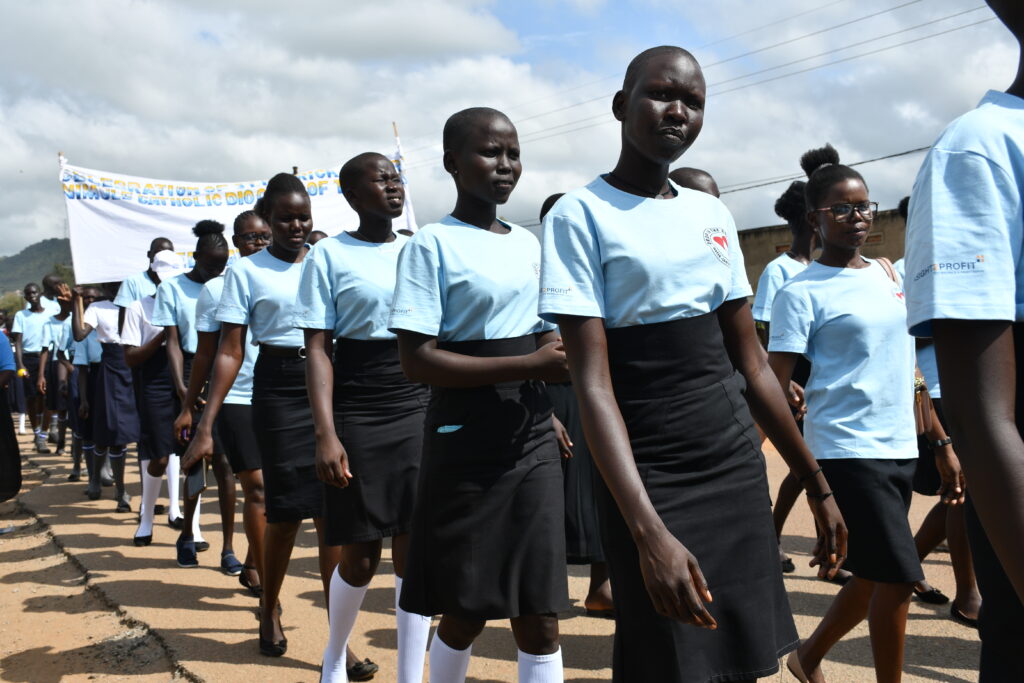
New Video on Drop in the Bucket’s Education Program in South Sudan We recently completed this video on our education program in South Sudan. It does a good job of explaining why a water charity would expand its program to include providing scholarships to girls. Since Drop in the Bucket started in 2006, our goal […]
A Grandmother’s Struggle with Dirty Water in Uganda
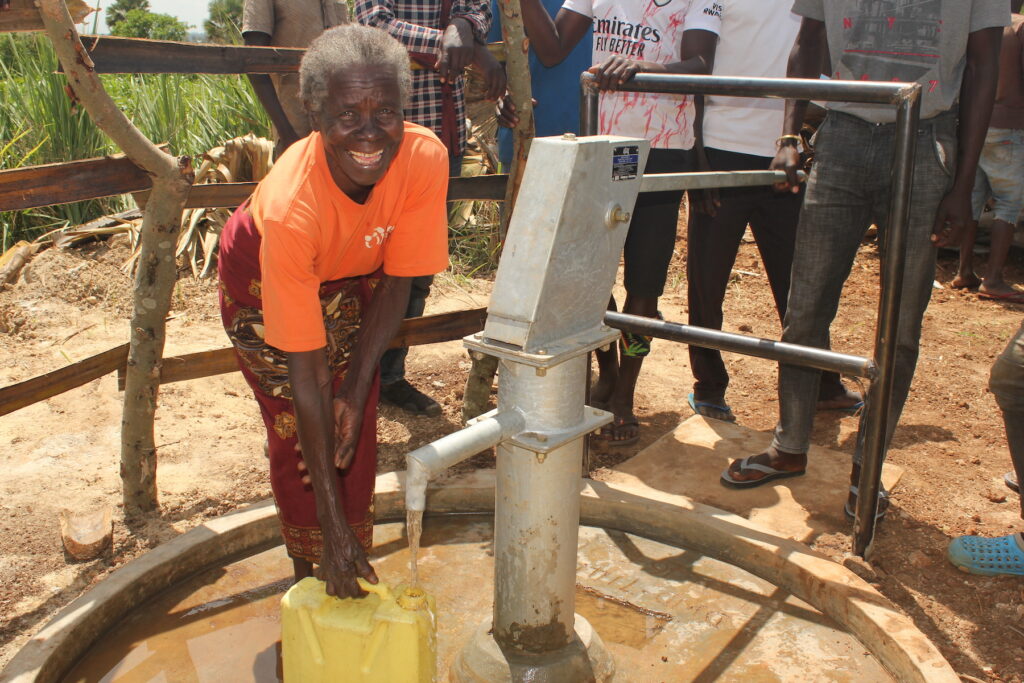
How a Water Well Changed This African Grandmother’s Life In Uganda, it is not uncommon for children to be raised by their grandmothers, often when parents are no longer together or both have passed away. Anena Kevin’s family is one such example. Anena and her brother Ezra are being cared for by their grandmother, Acan […]
International Day of the Girl Child 2023
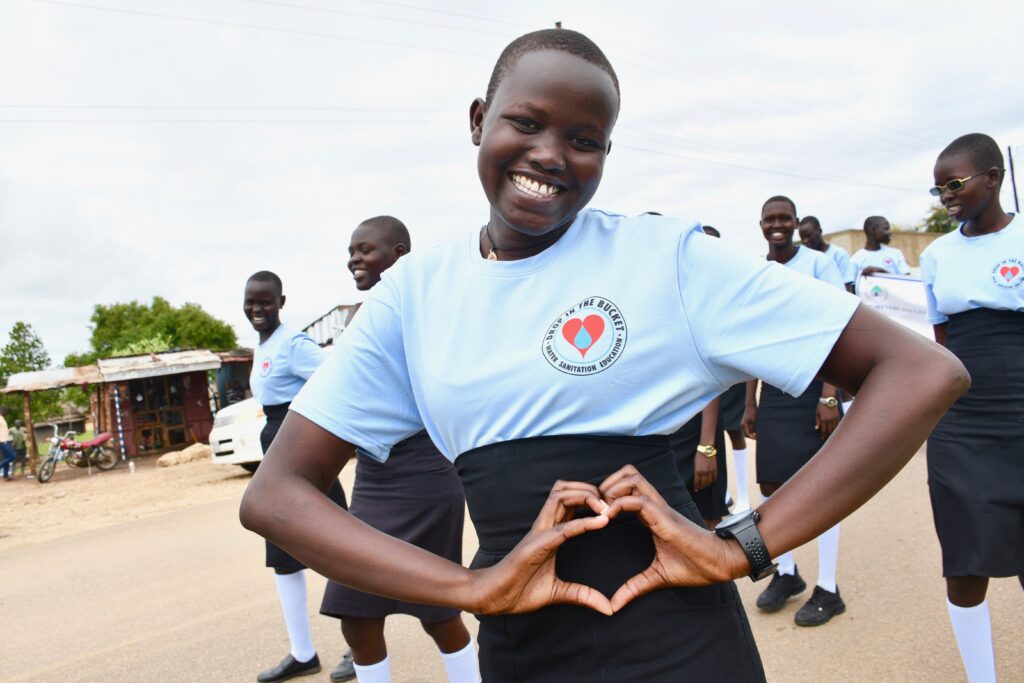
International Day of the Girl Child 2023 International Day of the Girl Child 2023 was a great success in Nimule, South Sudan, despite the absence of other NGOs that had previously participated in the event. The schools and the community still engaged in a meaningful, lively, and colorful day. DROP provided t-shirts to representatives from […]
Back to School in South Sudan
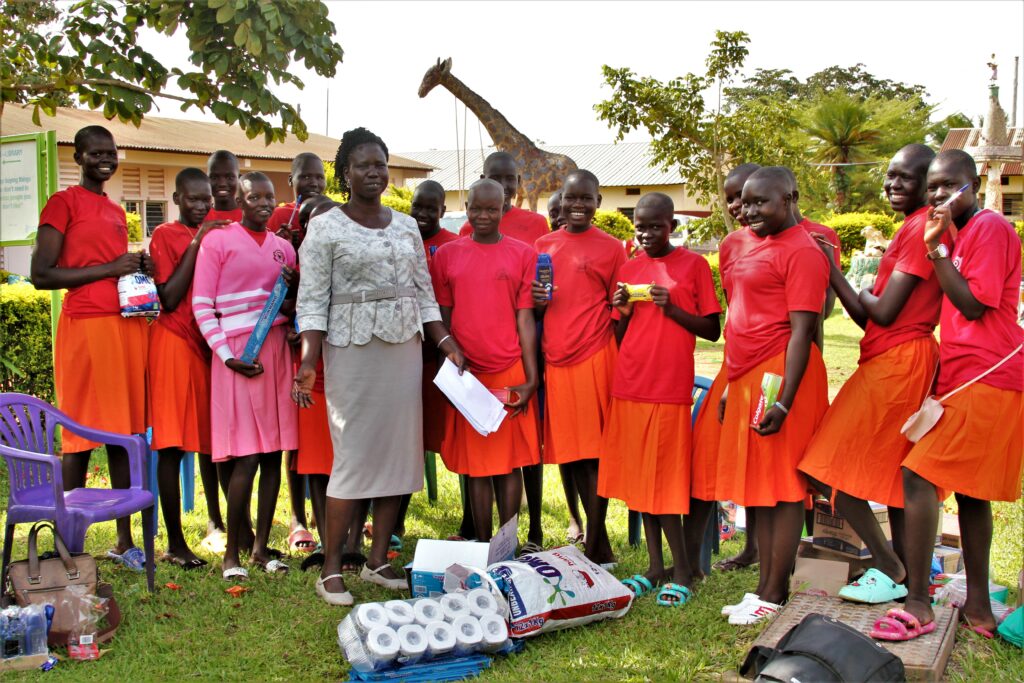
Back to School in South Sudan After a well-deserved second-term holiday, it’s time for the students to go back to school in South Sudan. The anticipation and excitement are palpable as our recent photos capture the moments of scholastic materials being sorted and groups of enthusiastic girls loading into vehicles. This year, we are proud […]
Living with Unsafe Water and HIV/AIDS in Africa

Clean Water Makes it Possible For Man with HIV/AIDS in Africa to Take His Medication We recently met Acaye Christopher at one of our recently drilled wells. Christopher is a spirited 63-year-old man who told is about life with HIV/AIDS in Africa. Along with his diagnosis, he was also living with unsafe water in Uganda. […]
Unyama, Te Pwoyo: A Village Transformed by Clean Water
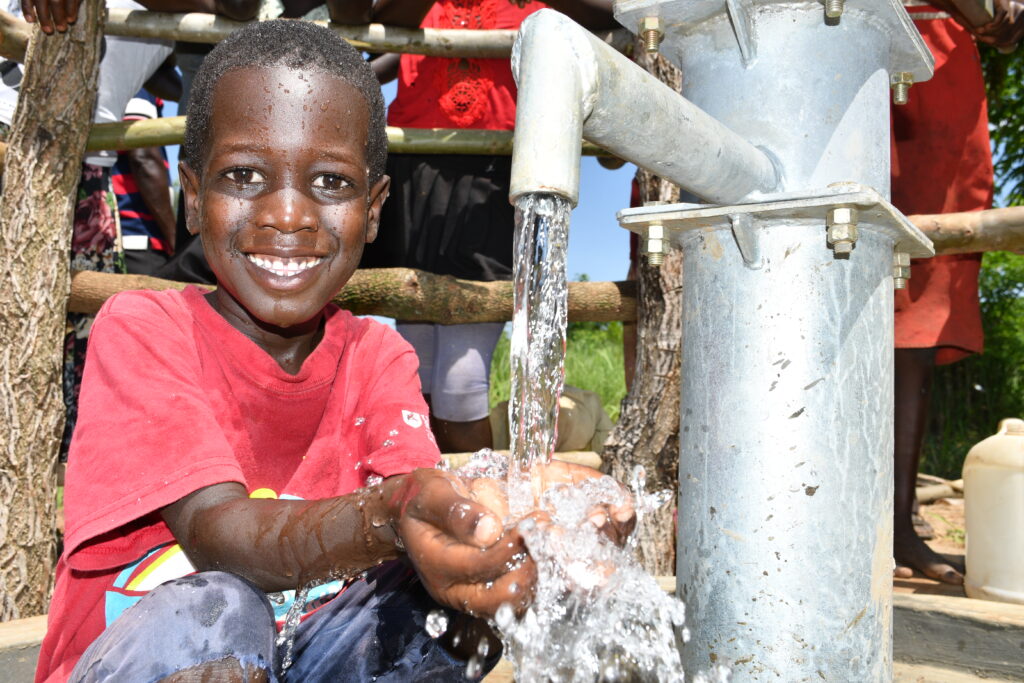
African Village Transformed by Clean Water In Te Pwoyo Village, a remote community in northern Uganda, a remarkable transformation is underway. Meet Omon Charles Ojok, a dedicated leader at the heart of this community. Ojok wears multiple hats, serving as the village health team member, the local council leader, and the chairperson of the water […]
St. Vicent Buliganwa Primary School: Clean Water Changes Everything
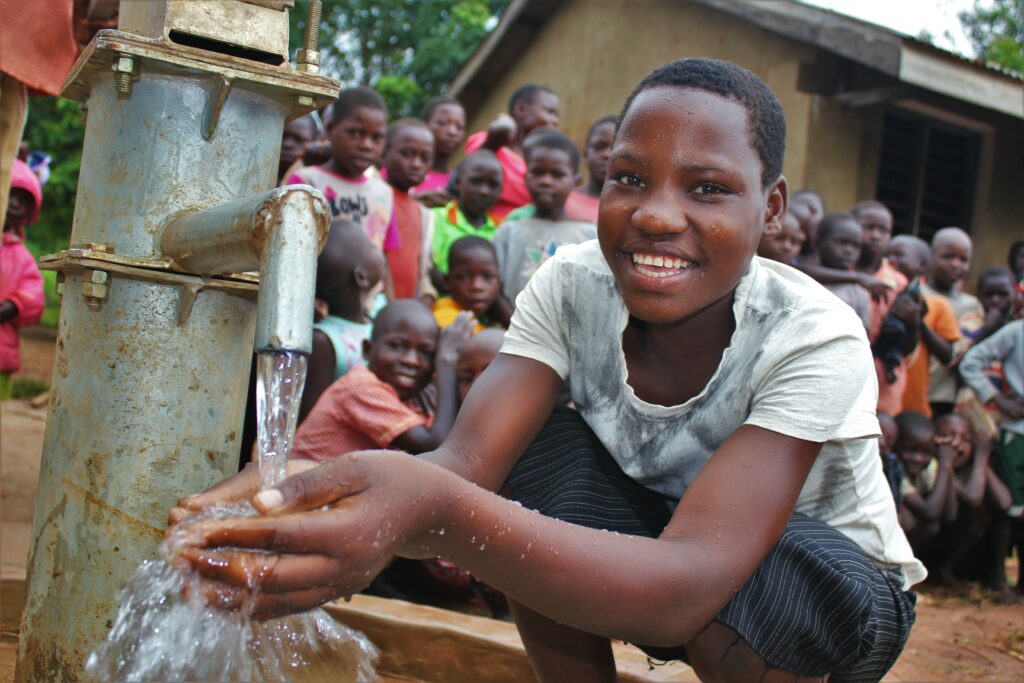
In Africa Clean Water Changes Everything Drop in the Bucket, is a testament to the transformative power of water and education. Every day as we work in remote villages, we see just how much clean water changes everything. Today, we want to share an inspiring story of resilience and determination from St. Vicent Buliganwa Primary […]
Bulumwaki Primary School in Uganda with No Clean Water
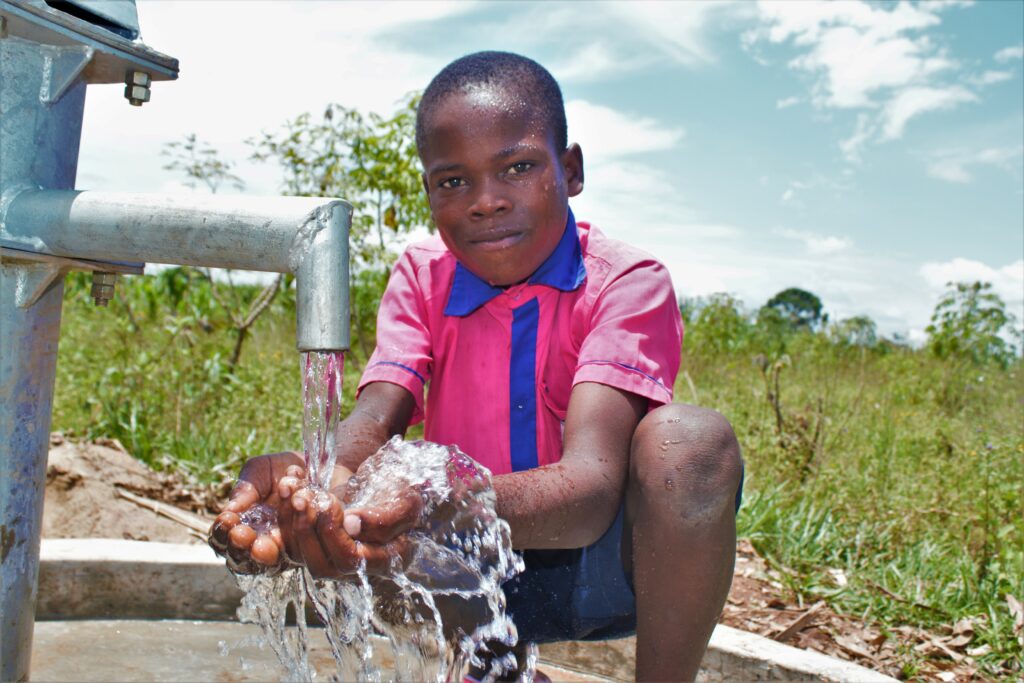
A Headteacher in a Tough Position It was January 2022, and Bulumwaki primary school was struggling. The new year had brought 836 pupils to the school, but there was no clean water. “We really needed a borehole (well), but we did not have the resources to get one drilled, and we had no way to […]
Bulubandi Primary – A School Transformed by Clean Water
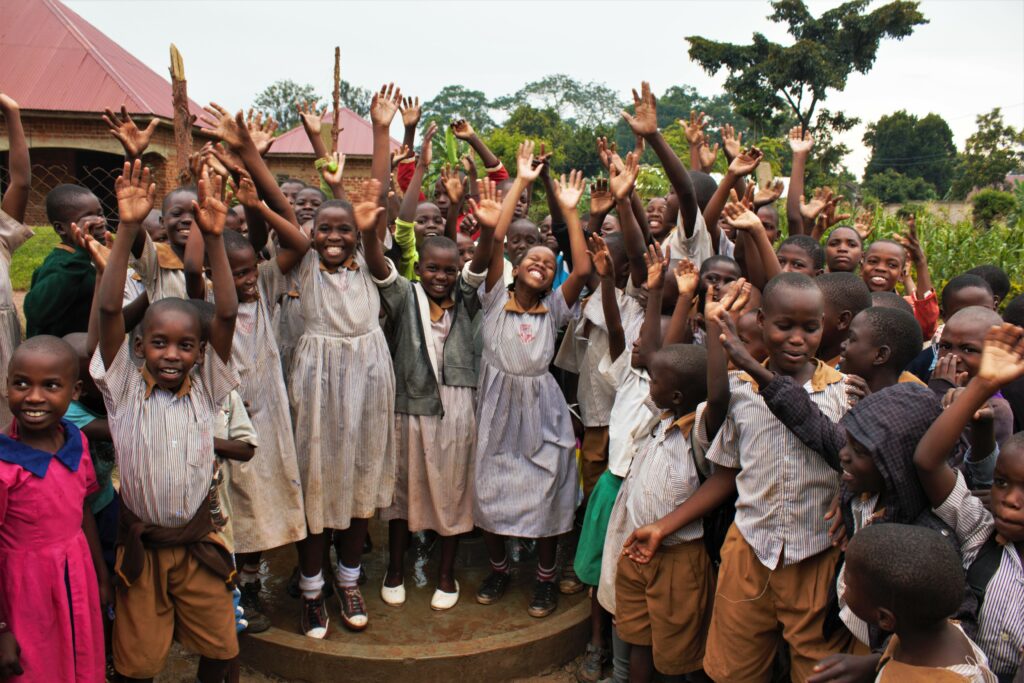
Bulubandi Primary School is one of the largest schools in eastern Uganda. With over 2,000 students, spanning grades 1 through 7, the head teacher, Naigaga Madinga well understands the magnitude of her job and is grateful for the fact that her school was transformed by clean water. Naigaga Madinga headteacher from the Bulubandi Primary School […]
A Ugandan health center finds relief with clean water
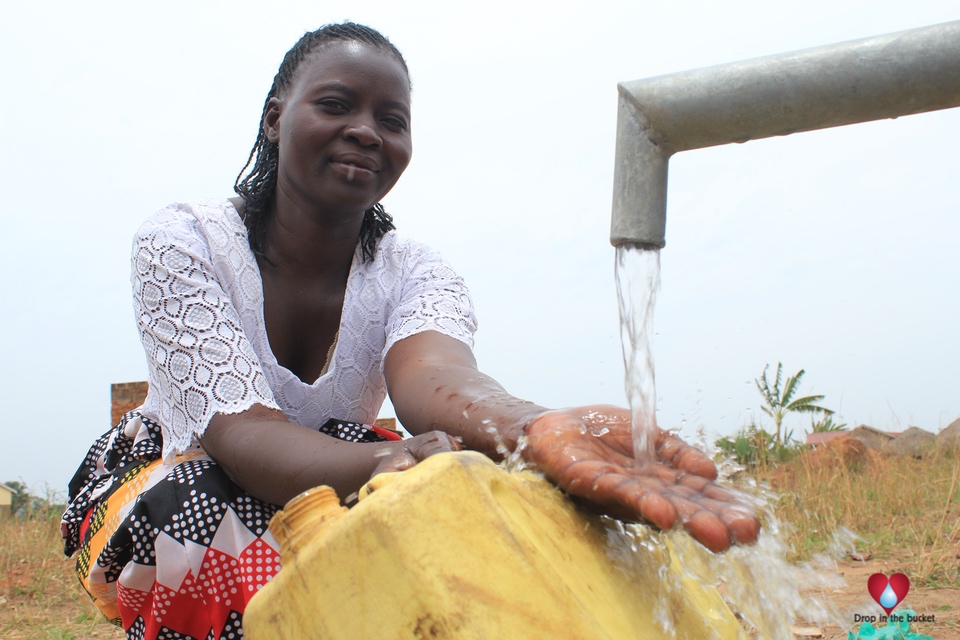
Pader Health Center finds Relief with Clean Water in Uganda Located in the Pader district of northern Uganda, the Angole Health Center II used to struggle to provide basic care to its patients due to unsafe water. The health center, situated near a trading center, serves as a vital community hub, yet its lack of […]
